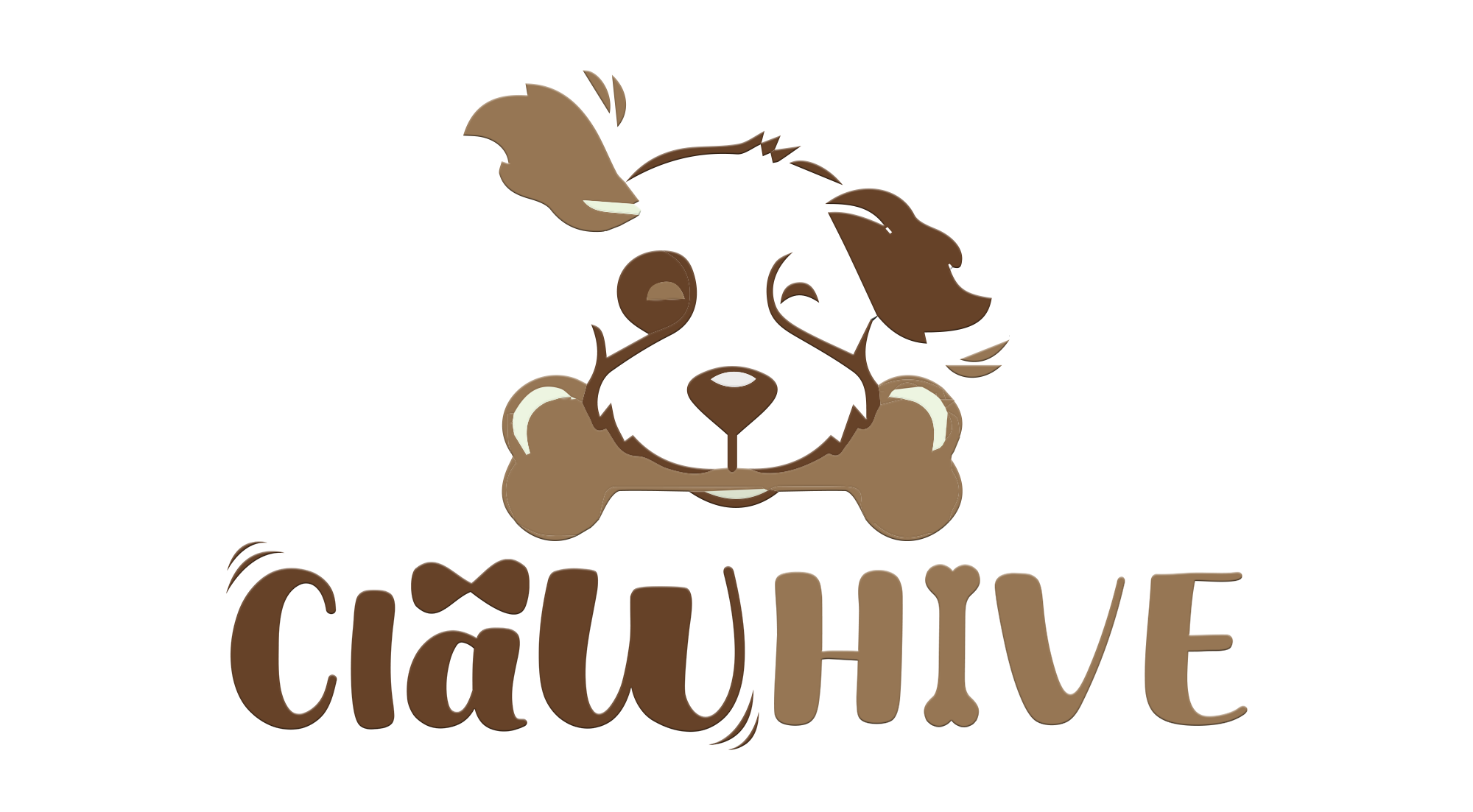Does your fluffy, giant dog sound like they’re hacking up a hairball? That persistent cough could be a sign of tracheobronchitis in dogs, also known as kennel cough. While it can sound scary, tracheobronchitis is a relatively common respiratory illness that usually resolves on its own.
This blog from Claw Hive will help you understand everything about tracheobronchitis in dogs, from the causes and symptoms to treatment options and prevention tips.
What is Tracheobronchitis in Dogs?

Tracheobronchitis is an inflammation of the trachea (windpipe) and bronchi (air passages leading to the lungs).
Think of it like a cold for your pup, affecting the upper airways and making it difficult to breathe comfortably. This inflammation can be caused by viruses, bacteria, and even irritants like dust and smoke.
Kennel Cough: A Common Culprit
Tracheobronchitis is often referred to as kennel cough because it’s highly contagious among big white dog types as well as others, especially in places where they have close contact. This can include boarding kennels, doggy daycare facilities, dog parks, or even groomers.
Interested to know about dog ear polyps? Click here
What Causes Tracheobronchitis in Dogs?
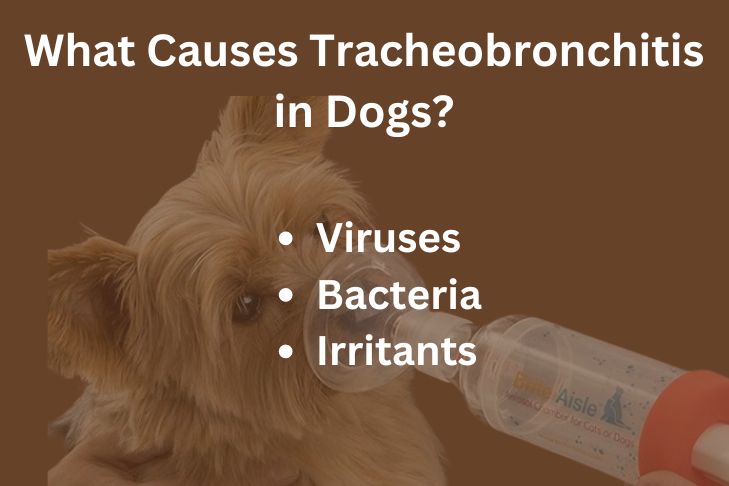
There are several culprits behind tracheobronchitis in dogs. Here are the most common:
- Viruses: Several viruses, including canine adenovirus and parainfluenza virus, can trigger tracheobronchitis.
- Bacteria: Bacteria like Bordetella bronchiseptica can also play a role, especially when combined with a viral infection.
- Irritants: Exposure to smoke, dust, or other airborne irritants can irritate the airways and cause inflammation.
Spotting the Signs of Tracheobronchitis in Your Pup
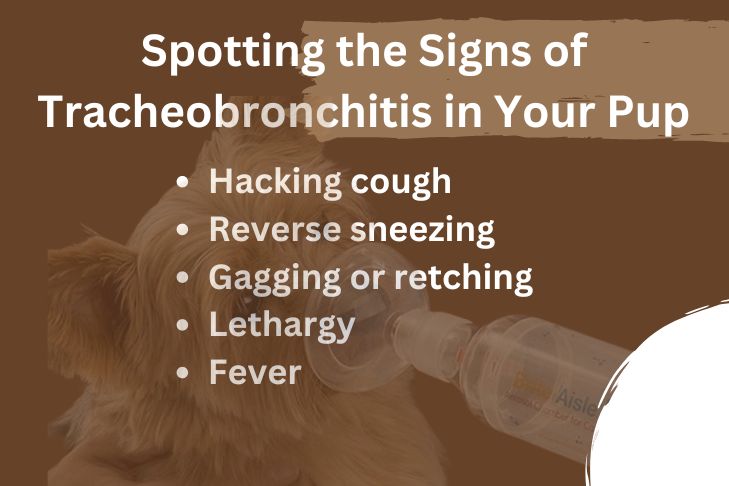
While that persistent cough is a telltale sign in your chunky dog, here are some other symptoms to watch out for if you suspect your dog might have tracheobronchitis:
- Hacking cough: This is most easily spotted and often sounds like a dry cough, which can get worse when your dog is excited, worked up, or after drinking.
- Reverse sneezing: It usually looks alarming but is often actually harmless, involving rapid inhalation through the nose, which causes snorting.
- Gagging or retching: The inflammation in the airways can irritate the throat, leading to gagging or unproductive coughing.
- Lethargy: Your dog might seem less energetic than usual and could lose their appetite.
- Fever: A fever can be a sign of a more serious infection, so it’s important to consult your vet if you notice this symptom.
Sometimes, fever also caused due to itchiness and infection. Read about Dark Itchy Spots on Dogs Skin.
When to See the Vet for Tracheobronchitis in Dogs?
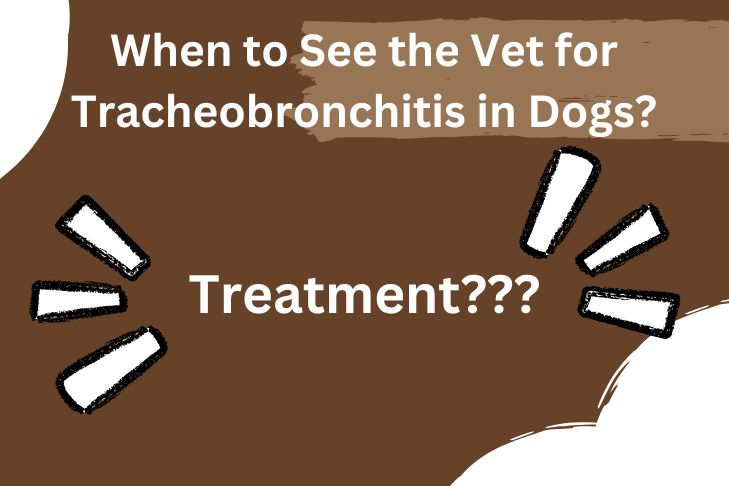
If your dog develops a cough that lasts longer than a few days, especially if it’s accompanied by other symptoms like lethargy or fever, it’s best to schedule a visit with your veterinarian for your pet, like if you have a big fluffy white dog.
The vet will likely perform a physical examination and listen to your dog’s lungs to assess the severity of the inflammation. Depending on the suspected cause, they might also recommend additional tests like x-rays or bloodwork.
Treatment Options for Tracheobronchitis
The positive thing about tracheobronchitis in dogs is that it usually heals itself within 1-2 weeks. However, your vet can recommend treatment options to help your biggest fluffy dog feel more comfortable during recovery. These might include:
- Cough suppressants: Medications can help control the cough and allow your dog to rest more comfortably.
- Bronchodilators: These medicines help open the airways, making breathing easier.
- Antibiotics: If bacteria are suspected to be a cause, your vet might prescribe antibiotics to fight the infection.
- Rest and hydration: Plenty of rest and fresh water are crucial for recovery. Limiting exercise while your dog is coughing can help prevent further irritation of the airways.
Preventing Tracheobronchitis in Your Pup
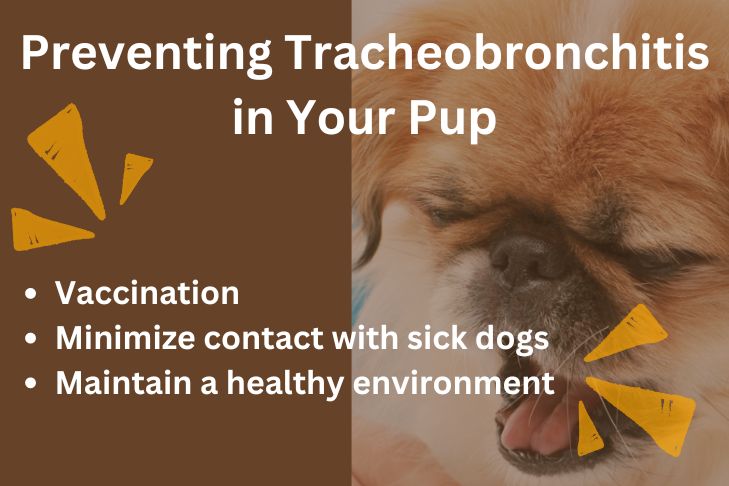
There’s no foolproof way to prevent tracheobronchitis, but here are some steps you can take to minimize the risk:
- Vaccination: Vaccinating your furry little dogs against canine adenovirus and parainfluenza can help reduce their chances of contracting these viruses that can cause tracheobronchitis.
- Minimize contact with sick dogs: Avoid places where your dog might come into contact with sick dogs, especially during peak seasons for respiratory illnesses.
- Maintain a healthy environment: Keep your dog’s living space free from smoke, dust, and other irritants.
Remember: Claw Hive is Here for You!
Tracheobronchitis in dogs can be a worrisome experience for pet parents, but with proper care and knowledge, your furry friend can bounce back quickly. If you have any questions or concerns about your dog’s cough, don’t hesitate to reach out to your veterinarian.
Here at Claw Hive, we’re passionate about keeping your canine companions healthy and happy. By understanding the signs of tracheobronchitis and taking steps to prevent it, you can ensure your dog enjoys a long and healthy life—full of happy barks and playful wags, not just coughs!

